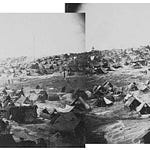Originally published on April 28, 2025 (Episode 405)
Introduction
Albert Einstein died in 1955 as the most influential scientist of the 20th century. Yet his presence has hardly faded. Since 2000, seven Nobel Prizes have been awarded for work stemming directly from what he published in 1905 and 1915. His image is so familiar—on posters, coffee mugs, and t-shirts—that it can be hard to remember he was a real person, embedded in the political and intellectual turmoil of his age: from Zionism to Nazism, from nuclear weapons to pacifism.
In Free Creations of the Human Mind: The World of Albert Einstein (OUP, 2025), Diana Kormos Buchwald and Michael Gordin recover that human Einstein. They strip away myth and caricature, situating him in the shifting landscapes of science, politics, and culture, and offering a nuanced portrait of genius in turbulent times.
About the Guests
Michael D. Gordin is Rosengarten Professor of Modern and Contemporary History at Princeton University, where he also serves as Dean of the College. Diana Kormos Buchwald, who could not join us for the recording, is General Editor and Director of the Einstein Papers Project.
For Further Investigation
Michael D. Gordin and Diana Kormos Buchwald, Free Creations of the Human Mind: The World of Albert Einstein (OUP, 2025)
Albert Einstein, The Essential Einstein, 2 vols., edited by Diana Kormos Buchwald and Tilman Sauer (Princeton, 2025)—both Public Writings and Scientific Writings
Walter Isaacson, Einstein: His Life and Universe (Simon and Schuster, 2008)— for a more mythic take
Related Episodes
“Isaac Newton, After Gravity”—what Newton did after he moved from Cambridge to London
“Connecting: From an English Portrait to Galileo, and Beyond”—a conversation with an eminent historian of science, John Heilbron
“Generations of Reason”—on a very mathematical and progressive English family
Listen and Discuss
What do you think is the biggest myth about Einstein—wild-haired genius, political naïf, reluctant celebrity? Drop a comment, and share this episode with a friend who still thinks he “flunked math as a kid.











